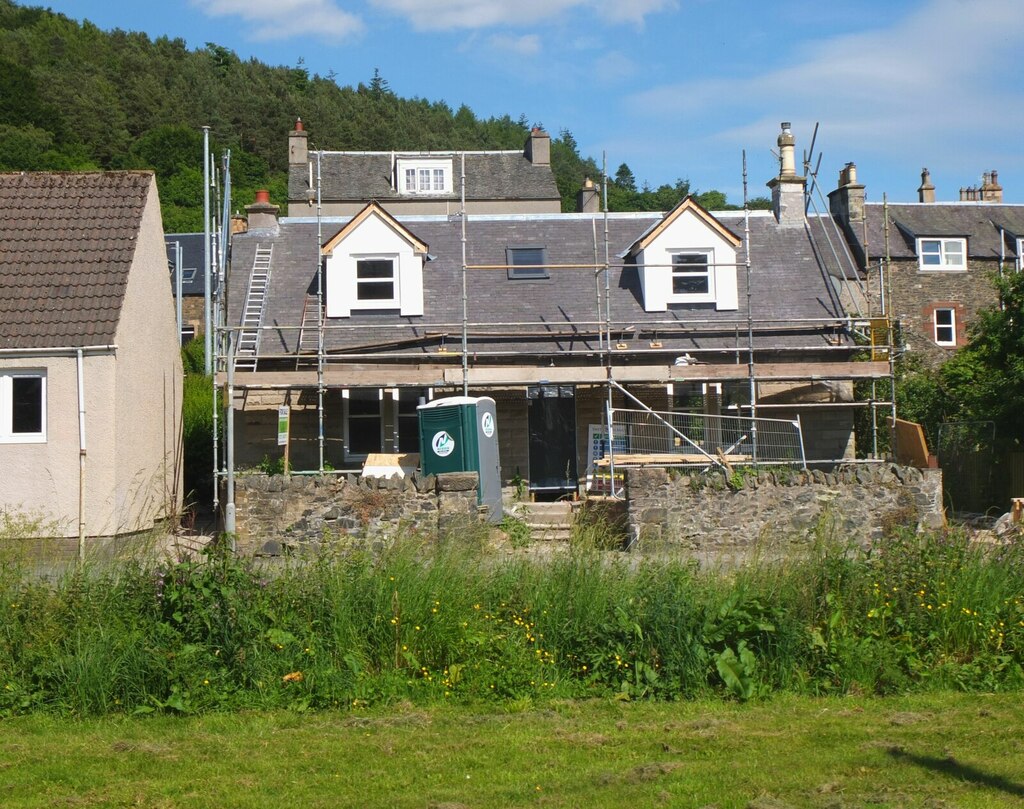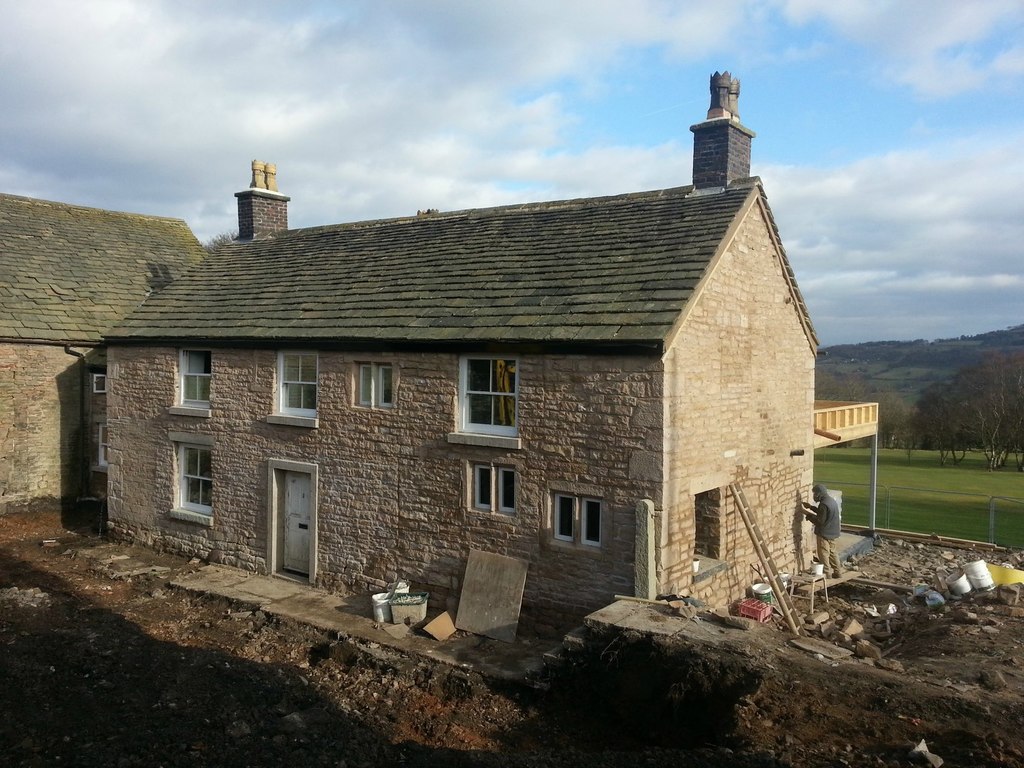
Renovating a House or Flat
Some home buyers choose to renovate their house or flat because they are looking to create the home of their dreams. What better way to put your own personal stamp on a property than buying a badly neglected house and restoring it to its former glory?
Other home buyers see renovating a house as purely a business proposition. Their goal is to buy a renovation property for a bargain price and then make money on the deal by selling the property quickly.
Whatever your reasons for renovating a house, flat or other property, our article takes you through all the factors you should consider before you start work. We also offer advice to save you time and money as well as pointing out the common problems and pitfalls. Before undertaking a renovation project, you should remember that it takes time, money and a lot of patience.

House Renovation or Remodelling?
Although often used interchangeably, renovating a house is not the same as remodelling a property. If you choose to renovate your property, it means the same as restoration. In other words, you are returning it to a condition similar to its original state, or a variation of that.
On the other hand, remodelling property means to alter the layout of the property – perhaps by knocking down inner partition walls or building on an extension. Before you start, you should decide which one you intend to do since it will have an effect on your budget and your timetable.

Budgeting for your home renovation project
Once you have decided how extensive your renovation work will be, you need to draw up a budget. In order to do so as accurately as possible, you need to research how much manpower and materials will cost. The cost will depend on how much work (if any) you intend to do by yourself and how much will be done by contractors.
Before hiring professionals, ask family or friends for personal recommendations and get estimates from at least 3 different companies.
You should also consider where you will source the materials from. If you are planning an authentic renovation project, original period features like doors, floors and fireplaces can often be found at salvage yards for a fraction of the price but tracking them down can be quite time-consuming.
Expenses for renovating a property
- Contractors and subcontractors
- Materials
- Insurance
- Fees for professionals like surveyors, architects, etc.
- Re-connection fees for utilities
- Fees to apply for planning permission
- Council Tax (often waived if a building is vacant while undergoing extensive renovation)
Even when you have double-checked all the figures, you should allow an extra 10%-20% for unexpected problems. It has been estimated that 4 out of 10 renovation projects go over budget. If you have a contingency fund for emergencies, expensive delays will not bring your project to a standstill.

Timetable for renovating a property
Along with your property renovation budget, you should also draw up a timeline of the different stages of the renovation project and how long you estimate each one will take. In this way, work will be done in the correct order and you can ensure that there are no long delays waiting for professionals to finish other jobs.
Keeping the renovation to a strict timetable can also help you financially. The longer the job takes, the longer it will be before you can move in or realise your investment by renting it out or selling it.
If you have borrowed money to fund the property purchase, your loan repayments will still have to be paid even when the house or flat is being renovated and standing empty.

Hiring professionals to renovate a house or flat
If you find the Planning permission difficult because of your lack of experience, you could consult professionals to help you such as a property surveyor, architect, structural engineer or architectural designer.
Although they will add to your overheads, they will be able to give you valuable advice to avoid making mistakes which could cost you both time and money. Making unforeseen mistakes is very common when renovating a house or flat, especially if you have never renovated a property before.
Before starting work, you should also contact your LPA (Local Planning Authority) to ensure that no planning permission is necessary. This is usually not the case for home improvements unless your house or flat is a listed building or is located in a Conservation or Designated Area.

What insurance do you need when renovating a house or flat?
Whether your house or flat is empty or occupied, buildings insurance is compulsory and is a prerequisite for a mortgage application. However, if you are moving out while the property renovation work is being carried out, you must notify your insurer as soon as possible or this could invalidate any claim you later make.
If you are hiring a contractor, they would normally be responsible for site insurance, but it is your responsibility to check. If the work is being subcontracted, you might need to consider:
- Public and employer’s liability cover
- Personal accident cover
- Site cover (against the theft of building materials and plant machinery)
You should consult your insurer as they will probably offer specialised renovations insurance which covers all your needs in one policy.
Another insurance policy you should consider if renovating a house or flat is a 10-year warranty. This specialised policy will cover you for any financial loss in the event of there being any flaws in the design, building materials or the quality of the building work.
This policy will pay for any repair work to remedy later issues. However, you must take out a warranty before any renovation work has begun or the premiums will be much higher.

3 tips to save money renovating a house or flat
1. Before throwing unwanted materials, old fixtures and fittings into a skip, contact a salvage yard to see if they would buy them. They will often come and collect them – saving you money on their transportation costs too.
2. If the building has been derelict or standing empty for 2 years or more, you might be entitled to reduced VAT.
3. If your house is a listed building, you might be eligible for a grant towards the cost of the renovation work. You should contact your local authority or National Heritage before you start work.
Back to UK Property Market Blog blog
Homepage: UK Property Auctions


